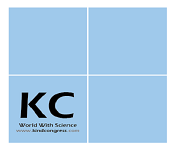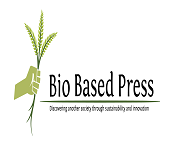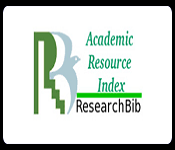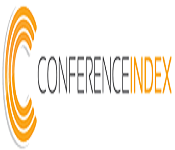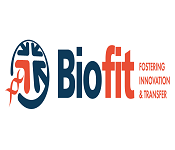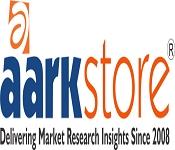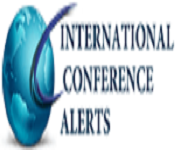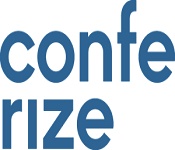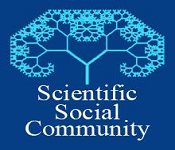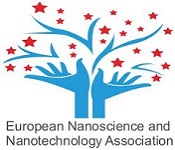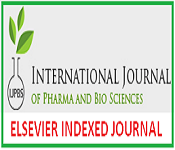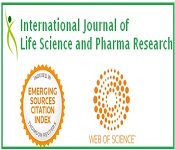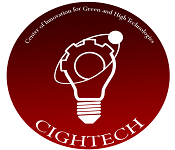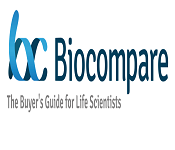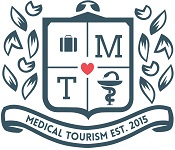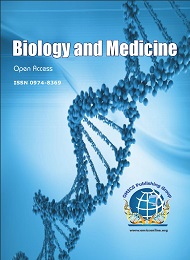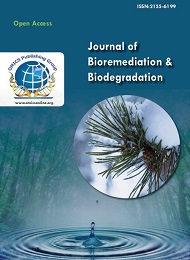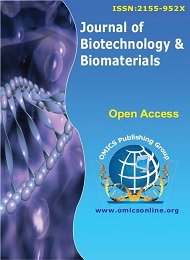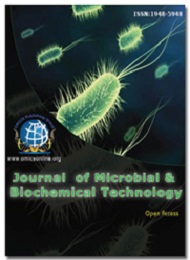Theme: Exploration of latest Applications in the field of Biotechnology
Biotechnology-2019
Conference Series llc LTD is a renowned organization that organizes highly prominent conferences around the world. Biotechnology-2019 welcomes all the participants around the globe which is going to be held during November 14-15, 2019 at Amsterdam, Netherlands. The subject of the event is, “Exploration of latest Applications in the field of Biotechnology”.
For Centuries, human beings have been building different approaches to know the secrets of science. Biotechnology, being the important one, helps the humankind in many ways including the most beneficial Gene editing which can be applied for developing the personalized medicine. This can serve the humanity at its best. Also, Biotechnology is involved in production, improvement and understanding of various biological processes that can be resembled to produce more products of improved quality.
Conference Series LLC Ltd scientific events are the specially designed cluster of a program that provides a common platform where industry meets academia to discuss the recent issues and happening. It serves as a bridge between researchers from academia and industry enhanced by its well-organized scientific sessions, plenary lectures, poster presentations, world-class exhibitions, diverse symposiums, highly enriched workshops and B2B meetings. These events emphasize the knowledge of all participants in different sectors and fields.
Conference Series Organizes 1000+ Global Events Every Year across the USA, Europe & Asia with support from 1000 more scientific societies and Publishes 700+ Open access journals which contain over 100000 eminent personalities, reputed scientists as editorial board and organizing committee members.
Why to attend???
Biotechnology-2019 Conference is a multidisciplinary program with broad participation with members from around the globe focused on learning about Biotechnology and its advances. This is your best opportunity to reach the largest assemblage of participants from Biotechnology community that is from academia, research entities, medical groups, related associations, societies and also from government agencies, pharmaceutical, biomedical and medical device industries.
A Unique Opportunity for Advertisers and Sponsors at this International event
Target Audience
The target of this conference is to gather the members from both industrial and academic fields as the audience which includes; CEOs, COOs, Directors, Vice Presidents, Co-directors, Biotechnologists, Managing Directors, Industry Safety Officers, Environmental & Plant Scientists, Doctorates, Professors, Post Doctorate Fellows, Dealers of Consumer Products/ Managers, Pharmaceutical Scientists, Students from the related fields.
Scope and Importance
Biotechnology is the technology applied to biology, molecular biology, genetics, and many other subdivisions of biology. Current biotechnology develops improved products to resist diseases, reduce our environmental harm, provide food to hungry, use less and cleaner energy and have safer, cleaner and more efficient industrial manufacturing processes. So far, more than 250 biotechnology health care products and vaccines have been made available to patients, many for chronic diseases. More than 13.3 million farmers all over the world use agricultural biotechnology to enhance yields, prevent damage from insects and pests and minimize the damage done on environment due to farming. And more than 50 bio-refineries are being constructed across North America to test and refine technologies to produce bio-fuels and chemicals from renewable biomass, which can help reduce greenhouse gas emissions. You can refresh your knowledge about current condition in the field and get name acknowledgment at this 2-day meeting. Biotechnology Event is a stimulating opportunity to highlight development. We endeavour to convey individuals from various fields and to impact a setting in which they can cooperate synergistically, and ideally make new logical outcomes.
2019 Highlights
-
100+ Participation (70 Industry, 30 Academics)
-
5+ Keynote Speakers
-
30+ Plenary Speakers
-
15+ Exhibitors
-
5+ Workshops
-
B2B Meetings
Track 1: Pharmaceutical Biotechnology and Drug Design
Pharmaceutical biotechnology is a relatively new and growing field in which the principles of biotechnology are applied to the advancement of drugs. Pharmaceutical companies uses biotechnology for manufacturing drugs, gene therapy, pharmacogenomics and genetic testing. Pharmacogenomics is the study of how genes changes a person’s response to drugs. Its objective is to grow rational means to enhance drug therapy, with respect to the patients' genotype, to provide maximum efficiency with minimum adverse effects. The Pharmaceutical Biotechnology is widely spread, ranging from many ethical concerns to changes in healthcare practices and an important contribution to the development of national recession.
1.1 Chemotherapy
1.2 Antibodies
1.3 Human Genomics
1.4 Clinical trails
1.5 Cell therapies
Related Conferences:
6th International Conference on Integrative Biology ,May 21-23, 2018, Barcelona, Spain; 7th International Conference and Exhibition on Cell and Gene Therapy, March 15-17, 2018, London,UK; 10th International Conference on Genomics and Molecular Biology, May 21-23, 2018 Barcelona, Spain; Biotech 2017 Sensor Technology and Online Analytics for (Bio)Process Understanding, September 07-08, 2017, Wadenswil, Switzerland; 6th International Conference on Biotechnology and Bioengineering, Sep 28- 30 Sep ,2017, Offenburg, Germany.
Related Societies:
Europe: Italian Society of Biochemistry and Molecular Biology, Spanish Society of Biotechnology, European Society for Precision Engineering and Nanotechnology, Pharmaceutical Society of Australia, Spanish Society of Biotechnology, New Zealand Plant Protection Society, Pharmaceutical Society of Australia, Russian Medical Society, Society for Engineering in Agriculture.
Asia: Israel Societies for Experimental Biology, The Pharmaceutical Society of Korea, Korean Society of Food Science And Technology, Society for Industrial Microbiology and Biotechnology (SIMB), Indian Society of Nano science And Nanotechnology, Society for Biotechnology, Tanta Pharmaceutical Scientific Society (TPSS).
USA: Mexican Society for Biotechnology and Bioengineering, National Society of Agriculture, The Protein Society, Pharmaceutical Marketing Society, Society for Biological Engineering.
Track 2: Animal biotechnology
Animal biotechnology is a category of biotechnology in which molecular biology techniques are used to genetically engineer (i.e. modify the genome of) animals in order to enhance their strength for pharmaceutical, agricultural or industrial applications. Animal biotechnology has been used to produce genetically modified animals that manufacture therapeutic proteins, are resistant to disease or have improved growth rates.
2.1 Sustainability in animal production
2.2 Transgenic animals
2.3 Animal models of human diseases
2.4 Molecular farming and animal bioreactors
2.5 Animal feed and Nutrition
Related Conference:
7th International Conference and Exhibition on Cell and Gene Therapy, March 15-17, 2018, London,UK; 4th International Conference on Bioscience, July 2-3, 2018, Vienna, Austria; Bioinformatics - Applications in Human Genomics and Precision Medicine Congress, 09 Oct 2017 - 10 Oct 2017, London , United Kingdom; Neuroepigenetics and Epitranscriptomics, Aug 19-26, 2017, Siena, Italy; The European Forum for Industrial Biotechnology and the Bioeconomy, October 19-20 2017, Brussels, Belgium; International Conference On Nanomedicine And Nanobiotechnology, September 25-27, 2017, Barcelona, Spain.
Related Societies:
Europe: Pharmaceutical Society of Australia, Italian Society of Biochemistry and Molecular Biology, Spanish Society of Biotechnology, European Society for Precision Engineering and Nanotechnology, International Society for Pharmaceutical Engineering, Romanian Society of Medical Mycology and Mycotoxicology, New Zealand Plant Protection Society, Pharmaceutical Society of Australia.
Asia: Indian Society of Nano science And Nanotechnology, Korean Society of Gene and Cell Therapy, Iran Society for Cell Biology, Israel Societies for Experimental Biology, Malaysian Pharmaceutical Society, Japanese Society for Quantitative Biology, Pharmaceutical Society of Singapore.
USA: National Society of Agriculture, The Protein Society, Pharmaceutical Marketing Society, Society for Biological Engineering, Mexican Society for Biotechnology and Bioengineering.
Track 3: Industrial biotechnology
Industrial biotechnology is a way to pollution prevention, resource management, and cost reduction. It is generally referred to as the third wave in biotechnology. The application of biotechnology to industrial processes is not only converting how we manufacture products but is also furnishing us with new products that could not even be imagined a few years ago. Industrial biotechnology implicates working with nature to maximize and improves existing biochemical pathways that can be used in manufacturing.
3.1 Production of Enzymes
3.2 Downstream process
3.3 Protein engineering
3.4 Biological/biomedical materials
3.5 Biofuels
3.6 Human proteins
Related Conference:
The European Forum for Industrial Biotechnology and the Bioeconomy, October 19-20 2017, Brussels, Belgium; International Conference On Nanomedicine And Nanobiotechnology, September 25-27, 2017, Barcelona, Spain; InnovateBopitech2017 — Biotechnology & Industrial Revolution, November 27-28, 2017, Brisbane, Australia; 13th Annual Quality in Pharma & Biotech, Sep 28 – 29,2017, Hanover, Germany; 23rd Annual International Partnering Conference, Nov 06-08, 2017, Berlin, Germany; Synaptic and Structural Plasticity, 26 Aug - 02 Sep 2017, Siena, Italy; Biotechnology Conferences, Japan 2018; 7th International Conference and Exhibition on Cell and Gene Therapy, March 15-17, 2018,London,UK.
Related Societies:
Europe: Spanish Society of Biotechnology, European Society for Precision Engineering and Nanotechnology, Italian Society of Biochemistry and Molecular Biology, The Pharmaceutical Society of Ireland, International Society for Pharmaceutical Engineering, New Zealand Plant Protection Society.
Asia: The Pharmaceutical Society of Korea, Korean Society of Food Science And Technology, Indian Society of Nano science and Nanotechnology, Pharmaceutical Society of Singapore, Korean Society of Gene and Cell Therapy, Iran Society for Cell Biology.
USA: The Protein Society, Mexican Society for Biotechnology and Bioengineering, National Society of Agriculture, Pharmaceutical Marketing Society, Society for Biological Engineering.
Track 4: Plant and agriculture biotechnology
Biotechnology has been practiced for a long time, as people have sought to develop agriculturally significant organisms by selection and breeding. An example of traditional agricultural biotechnology is the development of disease-resistant wheat varieties by cross-breeding different wheat types until the desired disease resistance wheat variety was produced. Genetic engineering technologies can help to enhance health conditions in less developed countries. Genetic engineering can result in improved keeping properties to make transport of fresh produced food easier, giving consumers access to nutritionally valuable whole foods and preventing decay, damage, and loss of nutrients. Benefits of Agriculture Biotechnology consists of Increased crop productivity, Improvements in food processing, Improved nutritional value, Enhanced crop protection, Environmental benefits, Improved flavour, Fresher produce.
4.1 Plant tissue Culture
4.2 Plant Pathology and Physiology
4.3 Crop Protection and Entomology
4.4 Transgenic plants and Crops
4.5 Plant Nutrition and Soil Sciences
4.6 Agriculture Machinery
4.7 Environmental and Agricultural Sustainability
Related Conference:
3rd World Bio summit and Expo, Dec 11-12, 2017, Dubai, UAE; Global Biotechnology Congress 2017, July 10-13, Bostan, USA; Bio 2017, June 19-22, 2017, Sandiego, USA; The European Forum for Industrial Biotechnology and Bio economy, Oct 19-20,2017 , Brussels, Belgium; 14th Asia Pacific Biotechnology Congress, July 20-22, 2017, Melbourne, Australia; 2nd International Conference on Bioscience, June 19-20, 2017, London,UK; 3rd Annual Congress and Expo on Bioscience Congress, Aug 10-12, 2017 Beijing, China; Festival of Genomics, Jan31-Feb01 , London, UK.
Related Societies:
Europe: Russian Medical Society, Italian Society of Biochemistry and Molecular Biology, Spanish Society of Biotechnology, European Society for Precision Engineering and Nanotechnology, Manchester University Pharmaceutical Society, Pharmaceutical Society of Australia, Spanish Society of Biotechnology.
Asia: Iran Society for Cell Biology, Israel Societies for Experimental Biology, The Pharmaceutical Society of Korea, Korean Society of Food Science And Technology, Korean Society of Gene and Cell Therapy, Malaysian Pharmaceutical Society, Tanta Pharmaceutical Scientific Society (TPSS).
USA: Mexican Society for Biotechnology and Bioengineering, National Society of Agriculture, The Protein Society, Pharmaceutical Marketing Society, Society for Biological Engineering.
Track 5: Nano-Biotechnology
Nano-biotechnology refers to the intersection of nanotechnology and biology. Given that the subject is one that has only emerged very recently, Bio nanotechnology and Nano-biotechnology serve as blanket terms for various related technologies. The most important objectives that are frequently found in Nano biology involve applying Nano tools to relevant medical/biological problems and refining these applications. Developing new tools, such as peptoid Nano-sheets, for medical and biological purposes is another primary objective in nanotechnology. New Nano-tools are often made by refining the applications of the Nano-tools that are already being used. The imaging of native biomolecules, biological membranes, and tissues is also a primary topic for the Nano-biology researchers. Other topics concerning Nano biology consists of the use of cantilever array sensors and the application of Nano-photonics for manipulating molecular processes in living cells.
5.1 Artificial organs/tissues
5.2 Modelling of behaviour of nanomaterials
5.3 Biomaterials in delivery System
5.4 Nano crystals and bio-crystallization processes
5.5 Synthesis of nanostructures
Related Conference:
World Congress on Drug Discovery & Development 2017; World Biotechnology Conference London, United Kingdom; Annual Summit on Cell Therapy, September 27-28, 2017, Chicago, Illinois, USA; Annual Summit on Cell Signaling and Cancer Therapy, September 27-28, 2017, Chicago, Illinois, USA; The European Forum for Industrial Biotechnology and Bio economy, Oct 19-20,2017 , Brussels, Belgium; 14th Asia Pacific Biotechnology Congress, July 20-22, 2017 , Melbourne, Australia.
Related Societies:
Europe: Manchester University Pharmaceutical Society, The Pharmaceutical Society of Ireland, International Society for Pharmaceutical Engineering, Romanian Society of Medical Mycology and Mycotoxicology, New Zealand Plant Protection Society, Pharmaceutical Society of Australia
Asia: Israel Societies for Experimental Biology, The Pharmaceutical Society of Korea, Indian Society of Nano science And Nanotechnology, Pharmaceutical Society of Singapore, Korean Society of Gene and Cell Therapy, Iran Society for Cell Biology, Malaysian Pharmaceutical Society.
USA: Mexican Society for Biotechnology and Bioengineering, National Society of Agriculture, The Protein Society, Pharmaceutical Marketing Society, Society for Biological Engineering.
Track 6: Stem Cell Biotechnology
Stem cell biotechnology is a revolutionary sub field of biotechnology to develop and improve tools and generate more on through modify and regenerative medicine stem cell technology is important role in tissue regeneration medicine The basis for vegetative cell transplantation is that blood cells (red cells, white cells and platelets) and immune cells (lymphocytes) arise from the stem cells, that are gift in marrow, peripheral blood and twine blood. Intense therapy or therapy kills the patient's stem cells. This stops the stem cells from creating enough blood and immune cells.
6.1 Stem Cell Therapy
6.2 Embryonic Stem Cells
6.3 Cancer Stem Cell
6.4 Stem Cell Niche
6.5 Adult Stem Cells
6.6 Induced Pluripotent Cells
6.7 Stem Cell Transplantation
Related Conference:
9th International Convention on Cell and Biobanking, October 23-24, 2017 Osaka, Japan; 3rd International Conference on Biotechnology and Agriculture Engineering, Mar 28-30, 2017, Osaka, Japan; 7th International Conference on Bioscience, Biochemistry, Bioinformatics, Jan 21-23, 2017, Bangkok, Thailand; Global Biotechnology Congress 2017, July 10-13, Boston, USA; 3rd International Conference & Exhibition on Tissue Preservation and Biobanking, August 23-24, 2017 San Francisco, California, USA.
Related Societies:
Europe: Spanish Society of Biotechnology, European Society for Precision Engineering and Nanotechnology, Pharmaceutical Society of Australia, Spanish Society of Biotechnology, Romanian Society of Medical Mycology and Mycotoxicology, New Zealand Plant Protection Society.
Asia: The Pharmaceutical Society of Korea, Korean Society of Food Science And Technology, Korean Society of Gene and Cell Therapy, Iran Society for Cell Biology, Malaysian Pharmaceutical Society, Tanta Pharmaceutical Scientific Society (TPSS), Israel Societies for Experimental Biology.
USA: Mexican Society for Biotechnology and Bioengineering, National Society of Agriculture, The Protein Society, Pharmaceutical Marketing Society, Society for Biological Engineering.
Track 7: Environmental Biotechnology
Environmental biotechnology in particular is the application of processes for the protection and rebuilding of the quality of the environment. Environmental biotechnology can be used to identify, prevent and remediate the emission of pollutants into the environment in a number of ways. Solid, liquid and gaseous wastes can be modified, either by recycling to make new products, or by purifying so that the end product is less toxic to the environment. Replacing chemical materials and processes with biological technologies can lower the environmental damage. In this way environmental biotechnology can make a significant contribution to sustainable development.
7.1 Environmental Pollution
7.2 Air pollution and control
7.3 Global environmental problems
7.4 Biotechnology in restoration of degraded lands
7.5 Biotechnology for treatment of industrial effluents
7.6 Bioremediation & Biodegradation
Related Conference:
3rd International Conference & Exhibition on Tissue Preservation and Biobanking, August 23-24, 2017 San Francisco, California, USA; 9th International Convention on Stem Cell and Biobanking, October 23-24, 2017 Osaka, Japan; 3rd International Conference on Biotechnology and Agriculture Engineering, Mar 28-30, 2017, Osaka, Japan; The European Forum for Industrial Biotechnology and Bio economy Oct 19-20, 2017, Brussels, Belgium; 14th Asia Pacific Biotechnology Congress, July 20-22, 2017, Melbourne, Australia; International Congress on Genomics and Bioinformatics, November 2-3, 2018, Columbus, Ohio, USA.
Related Societies:
Europe: Russian Medical Society, Spanish Society of Biotechnology, European Society for Precision Engineering and Nanotechnology, Pharmaceutical Society of Australia, New Zealand Plant Protection Society, Italian Society of Biochemistry and Molecular Biology, Society for Engineering in Agriculture.
Asia: Korean Society of Food Science And Technology, Society for Industrial Microbiology and Biotechnology (SIMB), Indian Society of Nano science And Nanotechnology, Malaysian Pharmaceutical Society, Tanta Pharmaceutical Scientific Society (TPSS).
USA: National Society of Agriculture, The Protein Society, Pharmaceutical Marketing Society, Society for Biological Engineering, Mexican Society for Biotechnology and Bioengineering.
Track 8: Biotechnology Industries In The Market
The Biotechnology Industry is largely divided into the medical and agricultural markets. Although enterprising biotechnology is also applied to other areas, such as the industrial production of chemicals and bioremediation, the use in these areas is still specialized and reserved. On the other hand, the medical and agricultural industries have undergone biotechnology revolutions. This has included new research efforts, development programs, and business strategies to discover, alter, or produce novel biomolecules and organisms through bioengineering. Biotechnology has been involved in the initial drug discovery and screening stages. Most major pharmaceutical companies have active target-discovery research programs heavily dependent on biotechnology.
Related Conference:
Annual Congress on Cellular Therapies, Stem Cells and Bio Medical Engineering, October 19-20, 2018, Baltimore, Maryland, USA; 24th Biotechnology Congress: Research & Innovations, October 24-25, 2018 Boston, USA; 10th World Congress and Expo on Cell & Stem Cell Research, March 19-21, 2018 New York, USA; 9th International Conference and Exhibition on Tissue Engineering and Biobanking, April 23-24, 2018 Las Vegas, Nevada, USA; 2nd Annual summit on Cell Signaling and Cancer Therapy, September 19 - 20, 2018 Philadelphia, Pennsylvania, USA.
Related Societies:
Europe: Manchester University Pharmaceutical Society, Manchester University Pharmaceutical Society, The Pharmaceutical Society of Ireland, International Society for Pharmaceutical Engineering, Romanian Society of Medical Mycology and Mycotoxicology.
Asia: Malaysian Pharmaceutical Society, Israel Societies for Experimental Biology, The Pharmaceutical Society of Korea, Korean Society of Food Science And Technology, Society for Industrial Microbiology and Biotechnology (SIMB), Indian Society of Nano science And Nanotechnology.
USA: Mexican Society for Biotechnology and Bioengineering, National Society of Agriculture, The Protein Society, Pharmaceutical Marketing Society, Society for Biological Engineering.
Track 9: Microfluidics For Biotechnology
Microfluidics is both the science which studies the behaviour of fluids through micro-channels, and the technology of manufacturing microminiaturized devices having chambers and tunnels through which fluids flow. Microfluidics deal with very small volumes of fluids, down to femtoliters (fL) which is a quadrillionth of a litre. Fluids react very differently on the micrometric scale than they do in everyday life. These unique features are the key for new scientific experiments and innovations.
Related Conference:
5th International Conference on Human Genetics and Genetic Disorders, September 21-22,2018 Philadelphia, Pennsylvania, USA; 11th International Conference on Genomics and Pharmacogenomics, September 21-22, 2018 Philadelphia, Pennsylvania, USA; 2nd Annual Summit on Cell Therapy and Stem Cell Research, November 9-10, 2018 Atlanta, Georgia, USA; Annual Industrial Biotechnology and Bioprocessing Congress, September 17-18, 2018 San Diego, California, USA; Annual Biotechnology Congress, July 23-24, 2018 Vancouver, Canada.
Related Societies:
Europe: Italian Society of Biochemistry and Molecular Biology, Spanish Society of Biotechnology, European Society for Precision Engineering and Nanotechnology, International Society for Pharmaceutical Engineering, Romanian Society of Medical Mycology and Mycotoxicology, New Zealand Plant Protection Society.
Asia: Israel Societies for Experimental Biology, The Pharmaceutical Society of Korea, Korean Society of Food Science And Technology, Society for Industrial Microbiology and Biotechnology (SIMB), Indian Society of Nano science And Nanotechnology, Japanese Society for Quantitative Biology.
USA: Mexican Society for Biotechnology and Bioengineering, National Society of Agriculture, The Protein Society, Pharmaceutical Marketing Society, Society for Biological Engineering.
Track 10: Food Biotechnology
Food Biotechnology is the use of technology to transform the genes of our food sources. Our food sources are animals, plants, and microorganisms. With food biotechnology, we form new species of animals and plants, for example, specifically animals and plants that we eat. The technology may not only improve the nutritional quality of staple foods, but can also decreases the need to cultivate crops on deforested land. With food biotechnology, we utilize what we know about science and genetics to improve the food we eat. By improvement, we mean either making the food cheaper to produce, longer lasting, more disease resistant, or extra nutritious.
10.1 Food Additives
10.2 Dairy technology
10.3 Food Processing and Preservation
10.4 Fermentation
10.5 Food Quality Standards
10.6 Food Microbiology
10.7 Food Packaging
Related Conference:
Pharmaceutical Microbiology conferences, May 21-23, 2018, Vienna, Austria; Bioscience conferences, July 2-3, Vienna, Austria; Biotechnology conferences, March 5-7, 2018 London, UK; Large Animal Genetic Engineering Summit, June 3-6, 2018, Park city, US; Biotech Conference and Exhibition, June 27-29,2018,Paris, France; International Conference on Food Safety and Health, August 30th, 2018, Dubai, United Arab Emirates; 9th Nano Congress for Future Generation, August 01-02, 2016 Manchester, UK; 6th Global Experts Conference on Meeting Expo on Nano materials and Nanotechnology, April 21-23, 2016 Dubai, UAE.
Related Societies:
Europe: Italian Society of Biochemistry and Molecular Biology, Spanish Society of Biotechnology, The Pharmaceutical Society of Ireland, International Society for Pharmaceutical Engineering, New Zealand Plant Protection Society, Pharmaceutical Society of Australia/.
Asia: Israel Societies for Experimental Biology, Tanta Pharmaceutical Scientific Society (TPSS), The Pharmaceutical Society of Korea, Korean Society of Food Science And Technology, Iran Society for Cell Biology, Malaysian Pharmaceutical Society, Japanese Society for Quantitative Biology, Society for Biotechnology.
USA: Mexican Society for Biotechnology and Bioengineering, National Society of Agriculture, The Protein Society, Pharmaceutical Marketing Society, Society for Biological Engineering.
Track 11: Marine Biotechnology
Marine Biotechnology is an innovative field of Science Research and technology concerning the support of living organisms with marine products and tools. It is an innovative way to produce genetically modified drugs, food and energy to overcome global demand. The Exploitation of Biotechnology for drug discovery including enzymes, antibiotics, biopolymers and chemical compounds from marine sources.
11.1 Aquatic Microbial Ecology
11.2 Oceanography
11.3 Aqua Culture Biotechnology
11.4 Biotechnology in fish breeding
11.5 Biotechnology and fish health management
Related Conference:
International Conference On Cell and Stem Cell Research, August 17-18, 2018 Singapore; Modeling Cell-Cell Interactions Governing Tissue Repair and Disease, August 19 - 24, 2018; Stem Cell Conference Basel 2018, August 29-31, 2018 Basel, Switzerland; 18th European Biotechnology Conferences, July 1-4, 2018 Geneva, Switzerland; 11th International Conference on Tissue Engineering & Regenerative Medicine, October 18-20, 2018 Rome, Italy; 12th World Conference on Human Genomics and Genomic Medicine,
April 22-23, 2019 Abu Dhabi, UAE.
Related Societies:
Europe: Italian Society of Biochemistry and Molecular Biology, Spanish Society of Biotechnology, European Society for Precision Engineering and Nanotechnology, Pharmaceutical Society of Australia, Spanish Society of Biotechnology, Society for Chemical Engineering Biotechnology, Manchester University Pharmaceutical Society.
Asia: Israel Societies for Experimental Biology, The Pharmaceutical Society of Korea, Korean Society of Food Science And Technology, Society for Industrial Microbiology and Biotechnology (SIMB), Indian Society of Nano science And Nanotechnology.
USA: Mexican Society for Biotechnology and Bioengineering, National Society of Agriculture, The Protein Society, Pharmaceutical Marketing Society, Society for Biological Engineering.
Track 12: Cancer Biotechnology
Biotech played and will continue to play an essential role in Cancer, ranging from Monoclonal Antibodies, Immuno-Oncology, CAR-T and everything in between. Cancer is a group of deadly diseases characterized by uncontrolled cell division leading to growth of abnormal tissue. It is also called as degeneration of one type of cell within an organism into something. It is believed that cancers arise from both genetic and environmental factors that lead to aberrant growth regulation of a stem cell population, or by the dedifferentiation of more mature cell types.
The “traditional” ways to tackle cancer are chemotherapy (Chemo) and Radiotherapy. One big problem with these techniques is the lack of specificity as chemo and radiotherapies are targeting cancer cells, but also healthy cells.
12.1 Immuno-Oncology
12.2 Cancer Drug Discovery
12.3 Cancer Drug Discovery
12.4 Cancer Management, And Prevention
12.5 Imaging in cancer
12.6 Organ Specific Cancers
Related Conference:
6th Asia Pacific Biotechnology Conferences, August 15-16, 2018 Singapore; 22nd World Congress on Biotechnology, July 10-11, 2018 Bangkok, Thailand, 18th European Biotechnology Conferences, July 1 - 4, 2018 Geneva, Switzerland; 11th International Virology and Microbiology, July 27-28, 2018 Vancouver, Canada ; 11th World Congress on Virology and Infectious Diseases, May 17-18, 2018 Tokyo, Japan; 16th Conference on Pharmaceutics, March 19-21, 2018 at Berlin, Germany; 13th European Pharma Conference, May 07-09, 2018 at Frankfurt, Germany.
Related Societies:
Europe: Spanish Society of Biotechnology, European Society for Precision Engineering and Nanotechnology, Pharmaceutical Society of Australia, Spanish Society of Biotechnology, Society for Chemical Engineering Biotechnology, Manchester University Pharmaceutical Society.
Asia: The Pharmaceutical Society of Korea, Korean Society of Food Science And Technology, Society for Industrial Microbiology and Biotechnology (SIMB), Israel Societies for Experimental Biology, Indian Society of Nano science And Nanotechnology, Pharmaceutical Society of Singapore, Korean Society of Gene and Cell Therapy.
USA: Mexican Society for Biotechnology and Bioengineering, National Society of Agriculture, The Protein Society, Pharmaceutical Marketing Society, Society for Biological Engineering.
Track 13: Techniques of Biotechnology
Laboratory Methods for Biotechnology is nothing but Hands-on Training, one of the most important aspects in experimental biology. This is an introductory-level course designed to acquaint participants with the wide range of modern techniques available for separating and purifying Biomolecules. Students enrolled in Biotechnology programs have an extensive opportunity to learn many cutting-edge Molecular Biology methods from lecture- and reading- based courses. The goal of this field is to expose students to various techniques in biotechnology as well as to prepare them for independence in research settings. The fundamentals of each technique will be presented, including practical examples such as Gel electrophoresis, Immunocytochemistry, ELISA & Spectrophotometry, Assays etc.
13.1 Gel Electrophoresis
13.2 Immunocytochemistry
13.3 ELISA & Spectrophotometry
13.4 Nucleic Acid Purification and Molecular Weight Determinations
13.5 Cell Separation Methods
13.6 Liquid Scintillation (double label) Counting
13.7 Molecular Diagnostics
Related Conference:
8th World Congress on Plant Genomics and Agricultural Sciences, August 20-21, 2018 Tokyo, Japan; 8th World Congress on Plant Science & Genomics, July 9-10, 2018 Sydney, Australia; Annual Pharmaceutical Biotechnology Congress, May 16-17, 2018; 20th World Congress on Biotechnology and Biotech Industries Meet, March 5-7, 2018 London, UK; 8th World Congress on Plant Genomics and Agricultural Sciences, August 20-21, 2018 Tokyo, Japan; 16th Conference on Pharmaceutics, March 19-21, 2018 at Berlin, Germany; 13th European Pharma Conference, May 07-09, 2018 at Frankfurt, Germany.
Related Societies:
Europe: Manchester University Pharmaceutical Society, The Pharmaceutical Society of Ireland, Italian Society of Biochemistry and Molecular Biology, International Society for Pharmaceutical Engineering, Pharmaceutical Society of Australia, Russian Medical Society, Society for Engineering in Agriculture.
Asia: Indian Society of Nano science And Nanotechnology, Israel Societies for Experimental Biology, Iran Society for Cell Biology, Malaysian Pharmaceutical Society, Japanese Society for Quantitative Biology, Society for Biotechnology, Tanta Pharmaceutical Scientific Society (TPSS).
USA: Mexican Society for Biotechnology and Bioengineering, National Society of Agriculture, The Protein Society, Pharmaceutical Marketing Society, Society for Biological Engineering.
Track 14: Protein Engineering
Protein Engineering is the design of new enzymes or proteins with new or desirable functions, conception and production of unnatural Polypeptides, done through by modification of amino acid sequences that are found in nature in order to improve their use to humans. it is a highly promising technique within the frame of Biocatalyst Engineering to improve enzyme stability and efficiency in low water systems .It is based on the use of recombinant DNA technology, Advances in engineering proteins for Bio-catalysis to change amino acid sequences, protein engineering methods and applications such as In vitro evolution of proteins, Enzyme pro drug therapy, Enzymes and Synthetic Biology, Enzymes and Sustainable Development are becoming increasingly important and widespread.
14.1- Enzyme pro drug therapy
14.2- Enzymes and Synthetic Biology
14.3- In vitro evolution of proteins
14.4- Advances in engineering proteins for biocatalysis
14.5- Substrate management and developments
14.6- Enzymes and Sustainable Development
Related Conference:
7th International Conference on Tissue Engineering & Regenerative Medicine, October 02-04, 2017, Barcelona, Spain; Synaptic and Structural Plasticity, 26 Aug - 02 Sep 2017, Siena, Italy; 23rd Annual International Partnering Conference, Nov 06-08, 2017, Berlin, Germany; BioTech 2017 Sensor Technology and Online Analytics for (Bio)Process Understanding, September 07-08, 2017, Wadenswil, Switzerland; 4th International Conference on Systems and Synthetic Biology, June 11-12, 2018 Rome, Italy: 16th International Pharmaceutical Microbiology and Biotechnology Conference, May 21-23, 2018, Vienna, Austria.
Related Societies:
Europe: European Society for Precision Engineering and Nanotechnology, Pharmaceutical Society of Australia, Spanish Society of Biotechnology, Society for Chemical Engineering Biotechnology, Manchester University Pharmaceutical Society, New Zealand Plant Protection Society, Pharmaceutical Society of Australia.
Asia: Korean Society of Food Science And Technology, Society for Industrial Microbiology and Biotechnology (SIMB), Indian Society of Nano science And Nanotechnology, Pharmaceutical Society of Singapore, Korean Society of Gene and Cell Therapy, Society for Biotechnology.
USA: Mexican Society for Biotechnology and Bioengineering, National Society of Agriculture, The Protein Society, Pharmaceutical Marketing Society, Society for Biological Engineering.
Track 15: Recombinant DNA technology
rDNA technology is the pairing together of DNA molecules from two distinct species that are infused into a host organism to yield new genetic combinations that are of value to science, medicine, agriculture, and industry. Since the target of all genetics is the gene, the fundamental goal of laboratory geneticists is to isolate, characterize, and manipulate genes. This technology has made it possible to separate one gene or any other segment of DNA and allowing researchers to determine its nucleotide sequence, examine its transcripts, modify it in highly definite ways, and replace the altered sequence into a living organism.
15.1 Mutation analysis
15.2 Production of recombinant proteins
15.3 Cell transformation
15.4 Molecular Biology
15.5 Virology
15.6 Gene probes and diagnosis of disease
Related Conference:
9th Molecular Immunology & Immunogenetics Congress , March 08-09, 2017, London, UK; Biotechnology Conferences Australia 2018; 4th International Conference on Systems and Synthetic Biology, June 11-12, 2018 Rome, Italy: 17th Euro Biotechnology Congress, September 25-27, 2017, Berlin, Germany; InnovateBopitech2017 — Biotechnology & Industrial Revolution, November 27-28, 2017, Brisbane, Australia; 13th Annual Quality in Pharma & Biotech, Sep 28 – 29,2017, Hanover, Germany; Bioinformatics - Applications in Human Genomics and Precision Medicine Congress, 09 Oct 2017 - 10 Oct 2017, London , United Kingdom.
Related Societies:
Europe: Italian Society of Biochemistry and Molecular Biology, Spanish Society of Biotechnology, Manchester University Pharmaceutical Society, The Pharmaceutical Society of Ireland, International Society for Pharmaceutical Engineering, Romanian Society of Medical Mycology and Mycotoxicology.
Asia: Indian Society of Nano science And Nanotechnology, Pharmaceutical Society of Singapore, Korean Society of Gene and Cell Therapy, Iran Society for Cell Biology, Malaysian Pharmaceutical Society, Japanese Society for Quantitative Biology, Society for Biotechnology.
USA: Mexican Society for Biotechnology and Bioengineering, National Society of Agriculture, The Protein Society, Pharmaceutical Marketing Society, Society for Biological Engineering.
Track 16: Biosensors in biotechnology
A Biosensor is a device that has the potential to observe a particular substance or analyte with high distinction. Examples of such analytes include glucose, lactate, glutamate and glutamine. Most of the biosensors are capable of considering the concentration of an analyte in an aqueous solution, mainly producing an electrical signal, which is considered to be proportional to the analyte’s concentration in its determining range. An Enzymatic Biosensor consists of an enzyme, which identifies and then works with the target analyte producing a chemical signal, a transducer, which produces a physical signal from the chemical one, and an Electronic Amplifier, which first determines and then amplifies the signal.
16.1 Cholesterol Biosensor
16.2 Glucose Oxidase Biosensor for Diabetes
16.3 Thiol Biosensor
16.4 Nitrite Biosensors
16.5 Biomarkers for Diagnosis Diseases
16.6 Implantable Glucose Biosensor
16.7 Superoxide Anion Radical Biosensor
Related Conference:
15th World Congress on Biotechnology and Biotech Industries Meet, March20-22, 2017, Rome, Italy; 2nd International Conference Bioscience June 19-20, 2017, London, UK; 3rd Annual Congress and Expo on Bioscience Congress, Aug 10-12, 2017 Beijing China; 3rd International Conference on Biotechnology and Agriculture Engineering, Mar 28-30, 2017, Osaka, Japan; 8th International Conference on Food Engineering and Biotechnology, Apr 24-26, 2017 Kuala Lumpur, Malaysia; The European Forum for Industrial Biotechnology and Bio economy, Oct 19-20,2017 , Brussels, Belgium; 14th Asia Pacific Biotechnology Congress July 20-22, 2017 , Melbourne, Australia.
Related Societies:
Europe: Russian Medical Society, Society for Engineering in Agriculture, Italian Society of Biochemistry and Molecular Biology, Spanish Society of Biotechnology, The Pharmaceutical Society of Ireland, New Zealand Plant Protection Society, Pharmaceutical Society of Australia.
Asia: Society for Industrial Microbiology and Biotechnology (SIMB), Indian Society of Nano science And Nanotechnology, Pharmaceutical Society of Singapore, Korean Society of Gene and Cell Therapy, Japanese Society for Quantitative Biology.
USA: Mexican Society for Biotechnology and Bioengineering, National Society of Agriculture, The Protein Society, Pharmaceutical Marketing Society, Society for Biological Engineering.
Track 17: Biodegradation and Recycling
Bio-degradation is a natural way of recycling wastes, or breaking down organic matter into nutrients that can be used by other organisms. The word "Bio-" from the prefix signifies that the decomposition is completed by a enormous variety of bacterium, fungi, insects, worms, and other organisms that consumes the dead substances and recycle it into new forms and "Degradation" denotes the decay. In nature, nothing remains waste because everything gets recycled. Some organic materials will break down much quickly than others, but all will eventually decay.
By utilizing these natural forces of bio-degradation, people can reduce wastes and clean up some types of environmental contaminants. In this case the goal is to break down organic matter so that it will not cause pollution problems when the water is discharged into the environment. Through Bio-remediation, microorganisms are used to clean up oil leakage and other types of organic pollution. Composting and bio remediation provide many opportunities for student research.
17.1 Bio-deterioration and biodegradation of wood and polymeric materials
17.2 Bacterial bioremediation
17.3 Microbiologically influenced corrosion
17.4 Recycling of nutrients, waste and pollution
17.5 Biodiversity of organisms involved in biodeterioration
17.6 Bioremediation in environmental protection
Related Conference:
Annual Conference on Biomaterials for Bone Tissue Engineering, October 18-19, 2018 Dubai, UAE; International Congress & Expo on Genomics and Bioinformatics, November 2-3, 2018, Columbus, Ohio, USA; 5th International Conference on Human Genetics and Genetic Disorders, September 21-22,2018 Philadelphia, Pennsylvania, USA; 11th International Conference on Genomics and Pharmacogenomics, September 21-22, 2018 Philadelphia, Pennsylvania, USA; Genomics conferences, May 21-23, 2018, Barcelona, Spain; Molecular Biology conferences, May 21-23, 2018, Barcelona, Spain; Tissue Engineering conferences, October 18-20, 2018, Rome, Italy.
Related Societies:
Europe: Italian Society of Biochemistry and Molecular Biology, Spanish Society of Biotechnology, European Society for Precision Engineering and Nanotechnology, Pharmaceutical Society of Australia, Spanish Society of Biotechnology, Society for Chemical Engineering Biotechnology.
Asia: Israel Societies for Experimental Biology, The Pharmaceutical Society of Korea, Society for Biotechnology, Tanta Pharmaceutical Scientific Society (TPSS).
USA: Mexican Society for Biotechnology and Bioengineering, National Society of Agriculture, The Protein Society, Pharmaceutical Marketing Society, Society for Biological Engineering.
Track 18: Biochemistry and Biophysics
Biochemistry is the division of science that examines the chemical processes within and related to living organisms. It is a laboratory based science that combines biology and chemistry. By using chemical knowledge and techniques, Biochemists can identify and solve biological problems. It comprises of a range of scientific disciplines, including genetics, microbiology, forensics, plant science and medicine. Due of its scope, biochemistry is very important and advances in this field of science over the past 100 years.
Biophysics is necessary to determine the Mechanics of how the molecules of life are formed, how different parts of a cell functions, and how complex systems in our bodies like the brain, circulation, immune system, and others work. Biophysicists are ideally qualified in the quantitative sciences of physics, math, and chemistry and they are able deal with a wide collection of topics, ranging from how nerve cells communicate, to how plant cells capture light and convert it into energy, to how changes in the DNA of healthy cells can stimulate their transformation into cancer cells, to so many other biological problems.
18.1 Metabolomics
18.2 Membrane Biophysics
18.3 Computational and theoretical Biophysics
18.4 Biomolecules
18.5 Systems Biology
18.6 Biophysical approaches to cell biology
Related Conference:
18th World Pharma Congress, October 18-20, 2018 Warsaw, Poland; 16th International Conference and Exhibition on Pharmaceutical Formulations, July 26-27, 2018 Rome, Italy; 17th Annual Congress on Pharmaceutics & Drug Delivery Systems, September 20-22, 2018 Prague, 16th Conference on Pharmaceutics, March 19-21, 2018 at Berlin, Germany; 13th European Pharma Conference, May 07-09, 2018 at Frankfurt, Germany; 9th Molecular Immunology & Immunogenetics Congress, March 08-09, 2017, London, UK.
Related Societies:
Europe: Manchester University Pharmaceutical Society, Italian Society of Biochemistry and Molecular Biology, European Society for Precision Engineering and Nanotechnology, New Zealand Plant Protection Society, Spanish Society of Biotechnology.
Asia: Malaysian Pharmaceutical Society, Japanese Society for Quantitative Biology, Israel Societies for Experimental Biology, The Pharmaceutical Society of Korea, Korean Society of Food Science And Technology, Korean Society of Gene and Cell Therapy.
USA: Mexican Society for Biotechnology and Bioengineering, National Society of Agriculture, The Protein Society, Pharmaceutical Marketing Society, Society for Biological Engineering.ical
Track 19: Immunological Biotechnology
Immunological biotechnology represents a strategy for dissecting and manipulating molecular processes in health and disease and is crucial for the development and optimization of proteins for therapeutic intervention as well as diagnostics.
It is presently getting clear that the immune responses provide the development of many common disorders not traditionally viewed as immunologic, including metabolic, cardiovascular, cancer, and neurodegenerative conditions like Alzheimer’s disease. Besides, there are direct implications of the immune system in infectious diseases (tuberculosis, malaria, hepatitis, pneumonia, dysentery, and helminth infestations) as well. Hence, research in the field of immunology is of prime importance for the advancements in the fields of modern medicine, biomedical research, and biotechnology.
Europe: Russian Medical Society, Society for Engineering in Agriculture, Italian Society of Biochemistry and Molecular Biology, Spanish Society of Biotechnology, The Pharmaceutical Society of Ireland, New Zealand Plant Protection Society, Pharmaceutical Society of Australia.
Asia: Society for Industrial Microbiology and Biotechnology (SIMB), Indian Society of Nano science And Nanotechnology, Pharmaceutical Society of Singapore, Korean Society of Gene and Cell Therapy, Japanese Society for Quantitative Biology.
USA: Mexican Society for Biotechnology and Bioengineering, National Society of Agriculture, The Protein Society, Pharmaceutical Marketing Society, Society for Biological Engineering.
Biotechnology-2019 welcomes all the attendees, Researchers, presenters, associations and exhibitors from everywhere the globe to Amsterdam, Netherlands. We have a tendency to square measure delighted to ask you all to attend the “23rd World Congress on Biotechnology” that goes to be command on the month of November 14-15, 2019 at Amsterdam, Netherlands. This Congress Committee is exciting and informative conference program together with comprehensive lectures, symposia, workshops on informative topics, poster shows and numerous programs for participants from everywhere the globe. We invite you to Biotechnology 2019 conferences, to share purposeful expertise with scholars from round the world. We look forward to see you at Amsterdam, Netherlands.
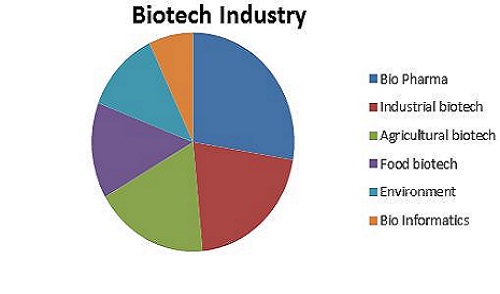
Importance & Scope:
Biotechnology is the technology applied to biology, molecular biology, genetics, and many other subdivisions of biology. Current biotechnology develops improved products to resist diseases, reduce our environmental harm, provide food to hungry, use less and cleaner energy and have safer, cleaner and more efficient industrial manufacturing processes. So far, more than 250 biotechnology health care products and vaccines have been made available to patients, many for chronic diseases.
More than 13.3 million farmers all over the world use agricultural biotechnology to enhance yields, prevent damage from insects and pests and minimize the damage done on environment due to farming. And more than 50 bio-refineries are being constructed across North America to test and refine technologies to produce bio-fuels and chemicals from renewable biomass, which can help reduce greenhouse gas emissions. You can refresh your knowledge about current condition in the field and get name acknowledgment at this 2-day meeting. Biotechnology Event is a stimulating opportunity to highlight development. We endeavour to convey individuals from various fields and to impact a setting in which they can cooperate synergistically, and ideally make new logical outcomes. The scope of the journal encompasses, but will not be limited to, the following fields pertaining to bacteria, archaea, viruses, fungi and protozoa:
-
Biochemistry, physiology and molecular biology
-
Ecology, evolution and biodiversity
-
Cellular microbiology
-
Environmental microbiology
-
Pathogenesis and host defence
-
Clinical Microbiology
-
Diagnostic Microbiology
-
Infectious diseases
-
Antimicrobial therapies and vaccines
-
Epidemiology and public health microbiology
-
Applied Microbiology
-
Industrial Microbiology
-
Microbiology Education
-
Microbiology Society
-
Biotechnology Society
-
Microbiology Associations
-
Biotechnology Associations
Biotech Market in Europe
Biotechnology contributes to the modernization of European industry. They are used in a variety of industrial sectors such as healthcare and pharmaceuticals, animal health, textiles, chemicals, plastic, paper, fuel, food, and feed processing. Taking advantages of biotechnology helps the EU economy grow and provides new jobs to people, while also supporting sustainable development, public health, and environmental protection. The biotech industry in Europe spends nearly $7.32 billion in R&D and $23.2 billion in revenue. Around 20% of the total marketed medicines, and as much as 50% of all drugs that are in the pipeline, are all healthcare biotech products. The European biotech industry provides employment to approximately 95,000 people.
Members Associated with Biotechnology:
-
Biotechnology Industries
-
Biotechnology researchers
-
Agro industry
-
Biotech Food Industry
-
Students
-
Research Scholars
-
Scientists
-
Young Researchers
-
Pharma Health care industries
-
Business associates
-
Biotechnology entrepreneurs
-
Training institutes
-
Industrial Biotechnology associations
Biotech Market in USA
The USA biotechnology market size was estimated at USD 270.5 billion in 2013 and is expected to grow at a CAGR of 12.3% growing to the increasing demand for therapeutic and diagnostics solutions such as red biotechnology, recombinant technology, and DNA sequencing. The increasing prevalence of diseases such as hepatitis B, cancer, and other orphan disorders is expected to serve as a high-impact rendering driver for this industry in recent period. Rising government initiatives giving high significance towards growth of the economy which is expected to boost the biotechnology market to grow over the forecast period.
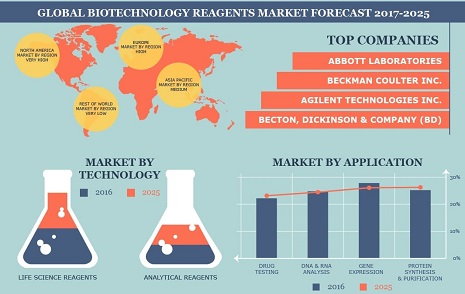
Top Biotechnology Universities in the world
-
Harvard University
-
University of Oxford
-
Massachusetts Institute of technology (MIT)
-
University of Cambridge
-
Stanford University
-
University of California
-
Yale University
-
University of Toronto
-
Perking University
-
University of Melbourne
-
Dalian University of Technology
-
Liaoning Normal University
-
Washington University
-
University of British Columbia
-
McGill University
-
The University of Hong Kong
-
Cornell University
-
National University of Singapore
-
University of Pennsylvania
-
University of London (UCL)
-
University of Chicago
-
University of Michigan
-
Duke University
-
The University of Queensland
-
Aarhus University
-
University of Gottingen
-
Korea Advanced Institute of Science and Technology
-
Lund University
-
York University
Global Biotechnology Industry Revenue:
Biotech products continue to slowly gain share from conventional drugs. Between 2010 and 2016 the global biotech segment grew at a CAGR of 3.7 per cent, from $263.7 billion to a projected $293.5 billion,20 with biotech comprising seven of the top 10 drugs in global sales in 2015.21 Over the five years from 2016 to 2021, global biotech revenue is estimated to rise to $314.7 billion. 22 Greater global investments in biotechnology, particularly in emerging economies, will largely drive this growth, and the industry is expected to undergo further commercialization to cater to an aging population in more developed economies.
Biotechnology applications market is divided into bio pharmacy, bio services, bio agriculture and bio industrial. Biotechnology market has been segmented into fermentation, tissue regeneration, PCR technology, Nano biotechnology, chromatography, DNA sequencing, cell based assay and others. Total Global Biotechnology market will reach a value worth of USD 414.5 billion by the end of 2018.
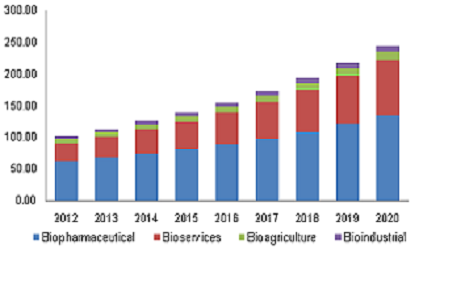
Why you should attend Conference/Lectures?
-
To sharpen your skills
-
Meet Experts & Influencers Face to Face
-
Networking Opportunities
-
Learning In a New Space
-
Break Out of Your Comfort Zone
-
New Tips & Tactics
-
The Energy of Like-Minded Individuals
-
The Serendipity of the Random Workshop
-
Invest In Yourself
-
Have Fun
Industry Insights
The Global biotechnology market size was estimated at USD 369.62 billion in 2016. Presence of room for partnerships in the sector is expected to drive significant progress in the industry. The companies are focusing on the development of novel techniques and their implementation by collaborating with the other participants. Organizations such as the DBT (Department of Biotechnology) together with government funded institutions and other autonomous organizations representing the biotechnology sector promote funding to support R&D and new product development endeavours.
Rise in demand for these therapeutics and diagnostic solutions on principles of red biotechnology, DNA sequencing, and recombinant technology is anticipated to fuel growth. Increasing prevalence of diseases such as hepatitis B, cancer, and other orphan disorders is expected to fuel demand in this space.
Target Audience:
Directors, Biotechnologist, Microbiologist, Pharmacist, Researchers, Academic Scientists, Business entrepreneurs, Industry Professionals, Head of department, Professors and Students from Academia in the research of Biotechnology.
-
Academia 60%
-
Industry 20%
-
Biotechnologists 15%
-
Others 05%
Biotech Congress 2018
The “20th Global Congress on Biotechnology” (Biotech Congress 2018) hosted by Conference Series llc LTD during the month of March 5-7 2018 at London, UK with a theme “Future prospects for Biotechnology and Bioeconomy”, was a great success where eminent Keynote Speakers from various reputed institutions with their resplendent presence addressed the gathering.
It was organized by Conference Series llc LTD and generous response was received from the Editorial Board Members of OMICS Group Journals as well as from eminent scientists, talented researchers and young student community. Researchers and students who attended from different parts of the world made the conference one of the successful and productive events in 2018 from Conference Series llc LTD.
The three days program witnessed thought provoking keynote and plenary presentations from experts in the field of Biotechnology, highlighting the theme, “Future prospects for Biotechnology and Bioeconomy".
The conference proceedings were carried out through various Scientific-sessions and plenary lectures, of which the following Speakers were highlighted as Keynote Speakers:
-
Peter J F Henderson, Astbury Centre for Structural Molecular Biology - University of Leeds, UK
-
Magali Rimbaud Simeon, INSA - Université de Toulouse, France
-
Omirbekova N Zh, Al-Farabi Kazakh National University, Kazakhstan
All the sessions were followed with great interest by our audience. Students from various parts of the world took active participation in poster presentations. Students who presented well were awarded with Best Poster Presentations for their outstanding contribution in the field of Biotechnology.
Special thanks to our Honourable Moderator David Rabuka, President of Redwood Bioscience, Inc. Redwood Bioscience, Inc. USA & Alireza Heidari, Professor California South University, USA for their remarkable contribution towards smooth functioning at Biotech Congress 2018.
Our organization would like to congratulate Bio Partner for being a Media Partner and Fraser Health for being an Exhibitor for 20th Global Congress on Biotechnology.
We are also obliged to various delegate experts, company representatives and other eminent personalities who supported the conference by facilitating active discussion forums. We sincerely thank the Organizing Committee Members for their gracious presence, support, and assistance towards the success of Biotech Congress 2018. With the unique feedback from the conference, we would like to announce the commencement of the "23rd World Congress on Biotechnology” is going to be held during November 14-15, 2019 at Amsterdam, Netherlands.
For more details visit: https://biotechnologycongress.conferenceseries.com/
Conference Highlights
- Pharmaceutical Biotechnology and Drug Design
- Animal biotechnology
- Industrial biotechnology
- Plant and agriculture biotechnology
- Nano-Biotechnology
- Stem Cell Biotechnology
- Environmental Biotechnology
- Biotechnology Industries In The Market
- Microfluidics For Biotechnology
- Food Biotechnology
- Marine Biotechnology
- Cancer Biotechnology
- Techniques Of Biotechnology
- Protein Engineering
- Recombinant DNA technology
- Biosensors in biotechnology
- Biodegradation and recycling
- Biochemistry and Biophysics
- Immunological Biotechnology
To share your views and research, please click here to register for the Conference.
To Collaborate Scientific Professionals around the World
| Conference Date | November 14-15, 2019 | ||
| Sponsors & Exhibitors |
|
||
| Speaker Opportunity Closed | Day 1 | ||
| Poster Opportunity Closed | Click Here to View | ||
Useful Links
Special Issues
All accepted abstracts will be published in respective Our International Journals.
- journal of bioremediation & biodegradation
- Journal of Biotechnology & Biomaterials
- Journal of Microbial & Biochemical Technology
Abstracts will be provided with Digital Object Identifier by
























